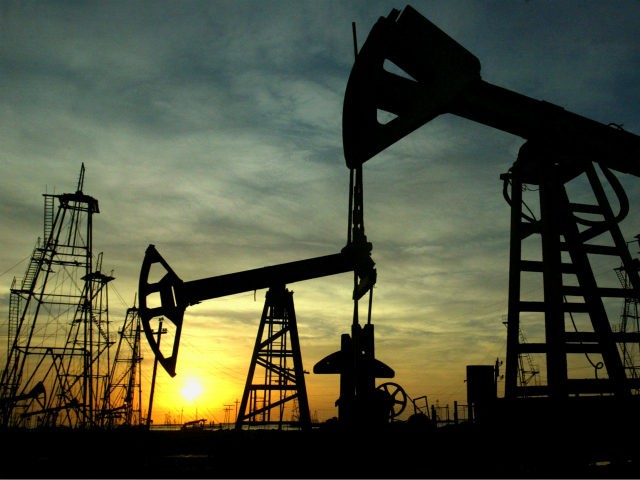It seems like only yesterday that the great hope of the oil market was that oil-producing nations, both inside and outside OPEC, would come together and cap production to bring prices back up. Now the chief executive of the Saudi national oil company says it will increase production, but he expects prices to start rising anyway.
“Supply and demand will come into balance by the end of the year, or first quarter next year. Prices will trend higher when that happens,” said Saudi Aramco CEO Amin Nasser, as quoted by CNN.
As CNN observes, oil prices have stabilized recently, after plunging to ten-year lows following a surge of production. The reason Nasser believes prices will continue recovering is that the International Atomic Energy Agency has predicted a tremendous rise in global demand for oil in the near future. When demand exceeds supply, the price plunge should reverse.
An appreciation for the elegance of unfettered market capitalism may not be the only motivation for Saudi Aramco’s talk of production increases.
It was recently announced, as part of Deputy Crown Prince Mohammed bin Salman’s ambitious plan for a national economic makeover, that Aramco would make a public offering of stock, to finance a world-class development and investment fund.
While the idea behind this plan is to make the Saudi economy less dependent on oil, the success of an Aramco stock offering will be heavily influenced by perceptions of its market leadership. Merely discussing the possibility of a production surge sends a message to potential investors: demand is coming back in a big way, and Aramco intends to be first in line to meet it.
The BBC portrays Nasser’s press conference as part of an image makeover for the previously secretive Aramco, which is likely to end up valued at over $2 trillion when its stock goes on sale, “four times the value of Apple.” The Vision 2030 reform agenda is heavily dependent on pulling in a lot of money by selling a little piece of Aramco, so much of what the Kingdom does in the near future will be geared toward keeping that market value up.
The Saudis also have not given up on the idea of battering a few competitors out of the market, notably the U.S. shale industry. A revamped Saudi economy that depends less on oil will be more insulated against the pain of price drops, which will give the Saudis even more leverage to over-produce and drown the competition.
Towards that end, Australia’s ABC News notes that “austerity measures” are a major component of the Vision 2030 plan. Less government spending, plus a more robust and diversified private sector economy, will mean greater political stability in the face of future slumps in oil demand. The Saudis are keenly aware of the political problems created by large concentrations of “disenfranchised youth.”
A notable skeptic of Saudi Arabia’s plan is Zach Schreiber, CEO of the PointState Capital hedge fund, who accurately predicted the oil price crash and made a billion dollars in profit.
CNN reports Schreiber is now betting against the success of the Saudi reform effort. He thinks the Kingdom has “two to three years of runway before it hits a wall” and becomes “structurally insolvent.”
In essence, Schrieber thinks it is too late for the Saudis to change course — they have already over-extended themselves with a “lavish social spending program,” plus their military commitments and dangerously depleted their cash reserves.
Where Prince Salman touts the plan to sell Aramco stock as a master stroke that will give the Saudis enough quick cash to diversify their economy and establish profitable investments beyond the energy industry, Schreiber sees it as an act of desperation, warning that Saudi Arabia is “mortgaging away its future to buy time.”
Schreiber does see oil prices coming back up, but more because the U.S. dollar is regaining strength, thereby “making commodities like oil that trade in dollars more expensive for overseas buyers.” That would mean only more financial headaches for Saudi Arabia, particularly if the Chinese economy crashes and takes global oil demand with it, instead of the increased demand foreseen by Aramco’s CEO.

COMMENTS
Please let us know if you're having issues with commenting.